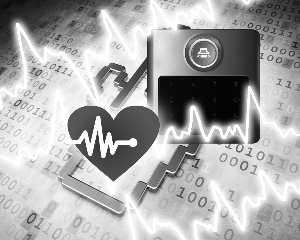This is Scientific American — 60-Second Science. I'm Christopher Intagliata.
Smartphones can already verify your identity by scanning your fingerprint or your face. But there's something inside you that's also unique proof that you're you.
Researchers have developed a device that uses low-powered Doppler radar to decode the unique geometry of a user's heart...and how it squeezes and swells as it beats. That biometric information can authenticate the identity of the person under scrutiny.
And if the wrong person sits down: "So it would recognize there is a heart, but the geometry of my heart is different from yours so it would still log me out." Wenyao Xu is a computer scientist at the University at Buffalo who helped develop the tech.

He says this unusual biometric is robust, because it's actually two different biometrics. The first is the shape of your heart—a 'biologic' biometric or static trait, like fingerprints or iris patterns. The second is the beating of your heart: what's called a 'behavioral' biometric—which analyzes a dynamic process, and can be harder to spoof.
So far they've tested the system on about 100 people—with an accuracy of over 98 percent. They'll present the results this month at the MobiCom conference in Utah.
Xu says the radiation from the device isn't harmful—just a fraction of what we get from our smartphones. But at a couple inches in size, the unit's not quite ready to fit inside a smartphone. "Uh, not yet. So we're waiting for the call from Apple." Because ya gotta have heart. But you also gotta have funding.
Thanks for listening for Scientific American — 60-Second Science Science. I'm Christopher Intagliata.












